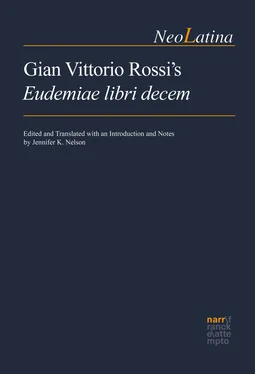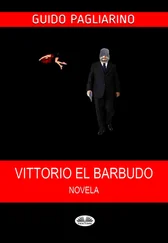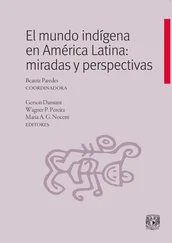
Jennifer K. Nelson
Gian Vittorio Rossi's Eudemiae libri decem
Translated with an Introduction and Notes
Narr Francke Attempto Verlag Tübingen
[bad img format]
Gedruckt mit freundlicher Unterstützung der Librarians Association of the University of California.
ISSN 1615-7133
© 2021 • Narr Francke Attempto Verlag GmbH + Co. KG
Dischingerweg 5 • D-72070 Tübingen
www.narr.de• info@narr.de
Das Werk einschließlich aller seiner Teile ist urheberrechtlich geschützt. Jede Verwertung außerhalb der engen Grenzen des Urheberrechtsgesetzes ist ohne Zustimmung des Verlages unzulässig und strafbar. Das gilt insbesondere für Vervielfältigungen, Übersetzungen, Mikroverfilmungen und die Einspeicherung und Verarbeitung in elektronischen Systemen.
ISBN 978-3-8233-8430-4 (Print)
ISBN 978-3-8233-0264-3 (ePub)
To my late mother Judith Nelson. You brought the Baroque to life and made it sing.
| DBI |
Dizionario biografico degli Italiani . Treccani. www.treccani.it/biografie/ |
| Dialog . sept . |
Iani Nicii Erythraei Dialogi septendecim . Coloniae Ubiorum [i.e., Amsterdam]: Apud Iodocum Kalcovium [i.e., Joan Blaeu], 1645 |
| Ep . ad div . 1 |
Iani Nicii Erythraei Epistolae ad diversos . Coloniae Ubiorum [i.e., Amsterdam]: Apud Iodocum Kalcovium [i.e., Joan Blaeu], 1645. |
| Ep . ad div . 2 |
Iani Nicii Erythraei Epistolarum ad diversos volumen posterius . Coloniae Ubiorum [i.e., Amsterdam]: Apud Iodocum Kalcovium [i.e., Joan Blaeu], 1649. |
| Ep. ad Tyrr . |
Iani Nicii Erythraei Epistolae ad Tyrrhenum . Coloniae Ubiorum [i.e., Amsterdam]: Apud Iodocum Kalcovium [i.e., Joan Blaeu], 1645. |
| Eud . 1998 |
Iani Nicii Erythraei Eudemiae libri decem . Retiarius: Archivum Recentioris Latinitatis. Modern & Classical Languages, Literatures & Cultures (University of Kentucky, Lexington), 1998. https://mcl.as.uky.edu/liber-i |
| L&S |
A Latin Dictionary . Rev. & ed. C. T. Lewis and C. Short. Oxford: Clarendon Press, 1879. |
| OCD |
The Oxford Classical Dictionary , 4th edition. Edited by Esther Eidinow. Oxford University Press, 2012. |
Abbreviations for Classical texts follow the conventions of the Oxford Classical Dictionary , 4th edition. In the instances where a text is not in the OCD, the conventions of the Perseus Digital Library are followed. Citations to Classical texts follow the Loeb Classical Library editions from Harvard University Press, unless otherwise specified.
This translation of Eudemia began as my PhD thesis for the University of Florida Department of Classics. I thank the members of my dissertation committee for their guidance and support: Konstantinos Kapparis, Eleni Bozia, Jennifer A. Rea, and Mary A. Watt. It has been a deeply satisfying experience to combine my interests in Latin, Italian, Rome, and books. I thank Laurent Mayali, director of the Robbins Collection at the UC Berkeley School of Law, for his encouragement of my studies. Additionally, I would like to thank my professors at the University of Kentucky and UCLA for introducing me to the world of Neo-Latin: Michael J. B. Allen, Bernard Frischer, Carlo Ginzburg, Milena Minkova, Jane Phillips, Debora Shuger, Jennifer MorrishMorrish, Jennifer TunbergTunberg, Terence, and TerenceTerence Tunberg. Additionally, I thank Peter James Dennistoun Bryant, Ingrid De Smet, Laura Foster, Riccardo Gandolfi, Luisella GiachinoGiachino, Luisella, Kathryn L. Jasper, Michal Lemberger, Daniel Stolzenberg, and Laura Whittemore for their enthusiasm, insights, and aid. Special thanks goes to Erin Blake for her keen eye and superlative formatting skills. I am grateful to the Walter de Gruyter Foundation for Scholarship and Research and the European Studies Section of the Association of College & Research Libraries for awarding me the European Librarianship Study Grant that enabled me to conduct research at the Vatican Library in Rome. My gratitude also goes to the Librarians Association of the University of California for their generous grant to cover supplemental publishing costs. I especially want to express my heartfelt and humble thanks to two pillars of Neo-Latin scholarship who read my drafts with care and offered invaluable edits and comments: Jeroen De Keyser and Mark T. RileyRiley, Mark T.. Their generosity and kindness in lending their expertise, focus, and time to my translation was far more than I could have possibly expected. I would like to thank my parents: Alan H. Nelson, for instilling in me a love of Latin and books, and my late mother, Judith Anne Manes Nelson, for filling our home with music and languages. Finally, I express my gratitude to my husband, Oscar Luca D’Amore: Galeotto fu il Latino.
Introduction
Gian Vittorio RossiRossi, Gian Vittorio and Eudemia
Gian Vittorio RossiRossi, Gian Vittorio had an ax to grind. His Eudemiae libri decem tells the story of Flavius VopiscusFlavius Vopiscus Niger (Gian Vittorio Rossi?) Niger and Paulus AemiliusPaulus Aemilius Verus Verus, who escape from Rome in the aftermath of the conspiracy of SejanusSejanus, Lucius Aelius and become shipwrecked on Eudemia, an island located off the coast of Mauritania. They are rescued by a fellow Roman named GalloniusGallonius (Gabriel Naudé?), who becomes their guide. The two travelers discover a society of Latin speakers governed by a class of people called dynastae , administered by incompetent poliarchi (senators) and magistrates, where petty rivalries thrive, hard work and skill are trumped by personal relationships and favors, and where, as Luisella GiachinoGiachino, Luisella puts it, everything revolves around the “sinister omnipresence and omnipotence of money.”1 Writing under the pseudonym Ianus Nicius Erythraeus, Rossi brought to bear his vast knowledge of ancient and contemporary authors, his acerbic wit, and his mastery of Latin to weave a tale that, despite its fictional time and place, is a mordant critique of his own society: Rome under the reign of Pope Urban VIIIUrban VIII, Pope and the powerful Barberini family.
It is clear both from his own writings and from contemporary assessments of his talent that RossiRossi, Gian Vittorio was well read, witty, and, above all, an excellent Latinist. He was a member of the Accademia degli Umoristi, an influential literary academy that attracted intellectuals from all over Europe and was frequented by Rome’s high society, including Maffeo Barberinisee Urban VIII, Pope, later Pope Urban VIIIUrban VIII, Pope. Rossi hoped that his education, skills, and connections would lead to a fruitful career in the Roman Curia, but this never came to fruition. After a life of professional frustration, Rossi retired to a private life of reading and writing.
Among the literary products of his retirement years was Eudemia , described by Luigi GerboniGerboni, Luigi as a “venting of old grudges.”2 Published first in 1637 in eight books, and then in 1645 in ten books, Eudemia falls squarely within what Jennifer MorrishMorrish, Jennifer calls the “golden age of the Neo-Latin novel.”3 As Mark T. RileyRiley, Mark T. explains, examples of extended Latin prose fiction in the vein of ApuleiusApuleius’s Metamorphoses or PetroniusPetronius Arbiter’s Satyricon were rare until the early seventeenth century, when John BarclayBarclay, John published Euphormionis lusinini satyricon (Parisiis: Huby, 1605).4 Following Barclay’s satire, which, like Petronius’s Satyricon , was “full of lively incident and satirical descriptions of contemporary people and institutions,”5 RossiRossi, Gian Vittorio unleashed his arsenal of learning and wit against his contemporaries with full awareness of his ancient and modern generic predecessors.
Читать дальше













